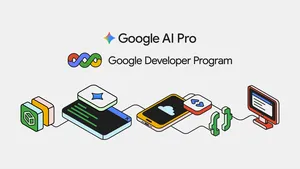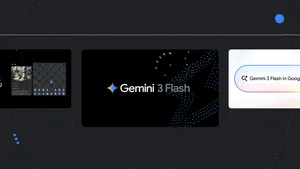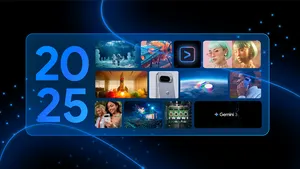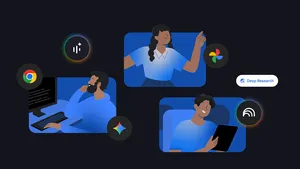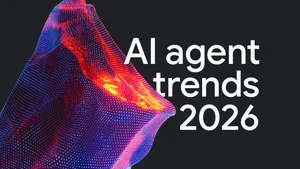Boosting sustainable solutions from Sweden

In Sweden, Google searches for “climate crises” have increased 110% in the past year, including questions such as “How is Sweden affected by the climate crises” and “How does the climate affect people's living conditions?”. People are also searching for answers on how they can help, posing questions such as “What sort of food is best from a climate change perspective?” and “How to recycle wood?”. The climate concerns are clear — as is the need for collective efforts to increase knowledge of climate issues and make it easier for people to take action.
At Google, we’re strong believers in cooperation and the power of technology to tackle some of the world’s greatest challenges, with sustainability being an important area of impact potential. Research supports this — according to a report by Implement Consulting, 20-25% of the greenhouse gas emissions reductions needed for a net-zero economy will require digital solutions.
That’s why in March, we launched the Google.org Impact Challenge: Tech for Social Good — the first open call for non-profit organizations, academic or research institutions and social enterprises in Sweden and other European countries to apply for technical help and up to 3 million Euros in funding for charitable projects focused on climate and sustainability.
With the help of an expert panel consisting of Gustav Lind (WWF), Victor Galaz (Stockholm Resilience Center), Mala Valroy (Industrifonden) Sara Öhrvall (Axel Johnson) and Kristian Rönn (Normative), today we’re announcing the chosen recipients and their projects.
Expert panelists with Google Sweden’s Country Director and a previous Google.org Fellow


Selected for funding and a Google.org Fellowship — a program that provides up to six months of pro bono support from a full-time team of technical Google employees (i.e. Google.org Fellows) — is Swedish social enterprise, Bower. Bower is a mobile app that, leveraging gamification, aims to create engagement and help more people recycle by offering incentives to recycle different types of consumer packaging. With the help of Google.org Fellows and funding, Bower will develop an AI-powered app that will enable users to scan, identify and better understand their trash - including its packaging, material composition and size - and get rewarded for sorting and recycling the waste correctly. The AI solution will be launched in ten markets and developed as open source, meaning the wider ecosystem can leverage it in their work. According to Bower, the organization aspires to save approximately 500K metric tons of CO2 equivalents annually by nurturing a culture of sustainable behaviors and recycling practices
Meet the recipients: Klimatkollen

With so many great sustainability solutions originating from Sweden, we’re happy to be able to support a second recipient of funding via the Google.org Impact Challenge - non-profit Klimatbyrån. Through their citizen platform Klimatkollen, Klimatbyrån works to increase transparency and improve access to carbon emissions data for companies and municipalities. The goal of their efforts is to build strong public support, ensure a more fact-based debate and improve decision-making for both municipalities and companies, ultimately bridging the gap between climate commitments and action, in line with the Paris Agreement. Leveraging funding from Google.org, Klimatkollen will scale their technical teams and develop new AI-powered tools that expand their existing open-source platform. Klimatkollen currently shows emissions data across 290 municipalities and will, in this project, add company data to their platform, with the goal of a 500% increase in municipalities and companies using and referring to Klimatkollen.
In a former European Google.org Impact Challenge, Swedish Normative was selected as a recipient. Leveraging Google.org resources — including a team of Google.org Fellows ranging from software engineers, user experience designers and product managers — they developed a business carbon emissions calculator that has now become the world’s most comprehensive and popular free tool for small and medium-sized businesses to leverage in their sustainability efforts.
Together, bridging Google’s technical and financial resources with Swedish innovation, we’re positive the recipients of this year’s Google.org Impact Challenge can help accelerate progress towards a more sustainable and resilient future in and outside of Sweden — and we can’t wait to be working alongside them on these important efforts.
